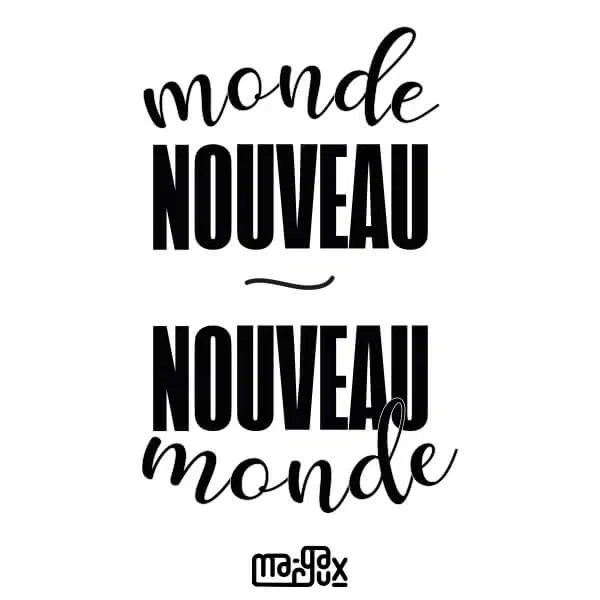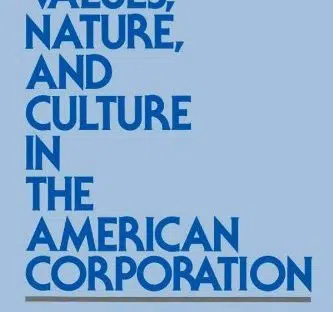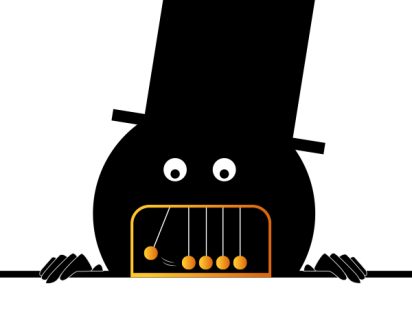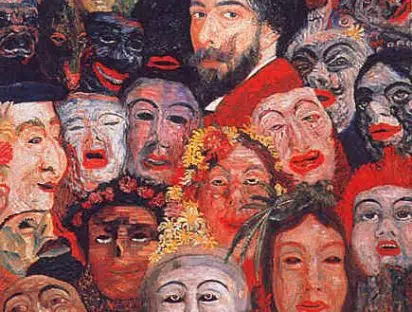
Two syntactic forms with “world” and “new” in the French language
Let us dwell for a moment on these principles. They are expressed through the use of the anaphora, a figure of speech here consisting of the repetition of the phrase “Le temps est venu” (The time has come) at the top of each item on the list. The first sets the tone:
(A) “The time has come, together, to lay the first stones of a new world (nouveau monde).”
The website of the Fondation Nicolas Hulot pour la nature et l’homme takes up these principles. There is also a commentary on people’s desire to change the world – a desire identified, it seems, through opinion surveys. In the excerpt below, the content of the next world is described succinctly:
(B) “As the polls repeat, public opinion is calling for a new world (monde nouveau) where climate change, the collapse of biodiversity and social inequalities would structure political and economic decisions.”
As indicated, in the original French version, there is a small difference in form between statements (A) and (B). Both refer to what in English would simply be called a new world, but in French, the first speaks of a “nouveau monde,” the second of a “monde nouveau.” Does this purely syntactic fact – it concerns the order of words in a nominal phrase composed of a name and an epithet – make sense? Or is it, as many would presume, insignificant? The first option is a reformulation of the seemingly implausible hypothesis we discuss in this and the next article.
A sample of the two syntactic forms in the French language
A Google search, based on the words ‘coronavirus’ and ‘covid-19’ and on either of the nominal groups including the noun monde (world) and the adjective nouveau (new), revealed that the number of occurrences of “nouveau monde” (379,000) was four times higher than the number of occurrences of “monde nouveau” (96,700) (1). In other words, the French adjective nouveau is anteposed (placed before the noun) in 80% of cases, and postposed in 20% of cases.
This result does not confirm the general data on the place of the adjective in the nominal phrase. Thus, Mats Forsgren notes that, with regard to the French language, “the overall relative frequency [is] roughly 35% anteposition [and] 65% postposition” (2), while Maurice Grévisse and André Goosse note that “the epithet is anteposed one out of three times [and one] adjective out of twenty prefers anteposition,” adding that “adjectives that prefer anteposition are among the most common adjectives” (3).
In order to provide factual information on the uses of the French forms “nouveau monde” and “monde nouveau” in the context of the Covid-19 health crisis, here are some samples of antepositions and postpositions of the French adjective nouveau. Statements (C) to (K) use the phrase “nouveau monde,” statements (L) to (S) “monde nouveau.” We present them without concern for chronology.
Antéposition
(C) “Coronavirus: Entre espoir et prudence, la gauche rêve d’un nouveau monde après l’épidémie (Coronavirus: Between hope and caution, the left side dreams of a new world after the epidemic).” (4)
(D) “Coronavirus et climat: vers un nouveau monde ? (Coronavirus and climate: towards a new world?)” (5)
(E) “Après le Covid-19, vers un nouveau monde ? (After Covid-19, towards a new world?)” (6)
(F) “Le nouveau monde après le Coronavirus (The New World after Coronavirus)” – “Est-ce la fin d’un monde ou le commencement d’un nouveau monde ? (Is it the end of a world or the beginning of a new world?)” (7)
(G) “Le président Macron, dit-on, écoute volontiers les conseils de Jean-Pierre Chevènement, le très républicain et très actif Hibernatus de l’ancienne gauche française. Ce furtif rapprochement du héraut autoproclamé du ‘nouveau monde’ et d’un brillant revenant du très ancien traduit bien, sur un mode ironique, le brutal changement d’atmosphère politique et idéologique provoqué par la crise du coronavirus. (President Macron, it is said, willingly listens to the advice of Jean-Pierre Chevènement, the very republican and very active Hibernatus of the former French left. This furtive rapprochement between the self-proclaimed herald of the ‘new world’ and a brilliant returnee from the very old one is an ironic reflection of the brutal change in the political and ideological atmosphere caused by the coronavirus crisis.)” (8)
(H) “L’atmosphère post-pandémie ne sera peut-être pas à la réinvention de soi-même ou d’un nouveau monde comme le proposait le Président [Emmanuel Macron], mais à de multiples conflits et à l’urgence sociale. (The post-pandemic atmosphere may not be one of reinvention of oneself or a new world as President [Emmanuel Macron] proposed, but one of multiple conflicts and social urgency.)” (9)
(I) “Coronavirus. Michel Houellebecq ne croit pas à un ‘nouveau monde’ après le Covid-19. (Coronavirus. French writer Michel Houellebecq does not believe in a ‘new world’ after Covid-19.)” (10)
(J) “Nous ne nous réveillerons pas, après le confinement, dans un nouveau monde; ce sera le même, en un peu pire (We will not wake up, after confinement, in a new world; it will be the same, only a little worse).” – But: “Michel Houellebecq est écrivain. C’est la première fois qu’il s’exprime depuis le début de la pandémie. Dans cette lettre, il récuse l’idée de l’avènement d’un monde nouveau après la crise du coronavirus. (Michel Houellebecq is a writer. This is the first time he has expressed himself since the beginning of the pandemic. In this letter, he rejects the idea of the advent of a new world after the coronavirus crisis.)” (11)
(K) “La crise du coronavirus: une parenthèse ou un nouveau monde ? (The coronavirus crisis: a parenthesis or a new world?)” (12)
Postposition
(L) “L’après-coronavirus: un monde nouveau est-il possible ? (Post-Coronavirus: Is a new world possible?)” (13)
(M) “Coronavirus: ‘On va déboucher sur un monde nouveau’, prédit Claude Lelouch (Coronavirus: ‘We’re going to give rise to a new world,’ predicts French film director Claude Lelouch)” – “Je sais qu’on va gagner, je sais que cela va être cher, très cher, car des gens vont souffrir, mais quelque chose me dit qu’on va déboucher sur un monde nouveau (I know we’re going to win, I know it’s going to be expensive, very expensive, because people are going to suffer, but something tells me we’re going to give rise to a new world).” (14)
(N) “Ces trois mois ont infligé de sévères dérèglements à l’ordre mondial. Sans préjuger du résultat final, ajustements ou monde nouveau, un point d’étape est déjà possible (These three months have inflicted severe disruptions on the world order. Without prejudging the final outcome, adjustments or a new world, a turning point is already possible).” (15)
(O) “De nombreuses initiatives, publiques ou non, tribunes et pétitions circulent depuis le début de la crise sanitaire. Elles portent la volonté de faire advenir un monde nouveau (Numerous initiatives, both public and private, forums and petitions have been circulating since the beginning of the health crisis. They all bear the will to bring about a new world.).” (16)
(P) “Déconfinement. Il faudra concilier activité et virus dans ‘un monde nouveau’ selon Bruno Le Maire (Lockdown. It will be necessary to reconcile activity and viruses in ‘a new world’ according to French Minister of the Economy and Finance Bruno Le Maire).” – But: “Nouveau monde. ‘Nous rentrons dans un monde qui est nouveau, dans lequel il faut que nous apprenions à conjuguer activité économique, travail et circulation du virus, et le succès de ce défi que nous avons à relever, il dépendra de chacun d’entre nous’ (New world. ‘We are entering a world that is new, in which we must learn to combine economic activity, work and the circulation of the virus, and the success of this challenge we face will depend on each one of us’).” (17)
(Q) “Le monde ne sera plus jamais comme avant’. Cette expression devenant souvent, chez celui qui la prononce, l’annonce d’un monde nouveau, radieux et lavé de ses erreurs… et de ses péchés, faut-il ajouter parce qu’il est difficile de ne pas sentir les racines religieuses, voire magiques, de cette affirmation (The world will never be the same again’. This expression often becomes, for the person who utters it, the announcement of a new world, radiant and washed of its errors… and its sins, we must add because it is difficult not to feel the religious, even magical, roots of this affirmation).” (18)
(R) “Peste, grippe espagnole… Les grandes pandémies ont-elles accouché d’un ‘monde nouveau’ ? (Plague, Spanish flu… Have the great pandemics brought about a ‘new world’?)” –“S’inspirant du slogan pacifiste ‘Plus jamais la guerre’, né après la boucherie de 1914-1918, ces voix rejoignent ainsi la cohorte de tribunes médiatiques prophétisant ou plaidant pour la naissance d’un monde nouveau, plus écologique et égalitaire, après l’épidémie de Covid-19 (Inspired by the pacifist slogan ‘Never again war,’ born after the butchery of 1914-1918, these voices join the cohort of media platforms prophesying or pleading for the birth of a new world which is more ecological and egalitarian, after the Covid-19 epidemic).” (19)
(S) “Penser un monde nouveau. Désobéir à l’oligarchie capitaliste, par Monique Pinçon-Charlot et Michel Pinçon (Thinking up a new world. Disobeying the capitalist oligarchy, by Monique Pinçon-Charlot and Michel Pinçon).” (20)
(T) “François Bayrou: “De cet énorme bouleversement doit sortir un monde nouveau’ (French centrist politician François Bayrou:’A new world must emerge from this enormous upheaval’).” – But: “Le président du MoDem se projette vers la sortie de crise et le ‘nouveau monde’ post-épidémie. Selon lui, les dirigeants politiques doivent réapprendre la ‘gravité’ (The President of the Democratic Movement sees himself at the end of the crisis and the post-epidemic ‘new world.’ In his opinion, political leaders must relearn the meaning of the word ‘gravity’).” (21)
Preliminary analysis
This short sample might suggest that the hypothesis of equivalence between “nouveau monde” and “monde nouveau” is sound. The one we are exploring here, that the word order (the nominal group syntax) would make sense, would be eliminated. The observations that follow seem to bear this out.
1) In statements (C) to (T), both forms (nouveau monde and monde nouveau) appear in short, catchy sentences as well as in long sentences. They are found in headings and in argumentative developments. Substituting one for the other does not seem to change the meaning of the text.
2) This intuitive fact is corroborated by the presence of both versions in the same text. This is the case for statements (J), (P) and (T). The inversions would be a simple stylistic effect.
Here is another example in which the adjective new is first anteposed (nouvelle ère: new era) and then postposed (homme nouveau: new man):
(U) “Will ideological and political victories embody moments of rupture so that, in a few decades, this crisis will be referred to as a point of reference for entering a new era? Is the coronavirus crisis a revolution that can give birth to a new man?” (12)
No doubt the author could have used the other three combinations allowed in the French language – “nouvelle ère” and “nouvel homme”; “ère nouvelle” and “nouvel homme”; “ère nouvelle” and “homme nouveau” – without changing the meaning of the passage.
3) The CNRTL specifies that while the adjective new may have only a temporal value (in the sense of a thing or event “that has just appeared”), it may also indicate “a change, a renewal with respect to a cultural or specific referent.”
This is what statements (C) to (T) seem to establish. They announce a change in relation to a given situation. But two questions immediately arise: has this change just appeared – in this case, we know what it consists of because the novelty is already there, before our eyes? Or is it still to come, as its future content remains unknown?
The statements (C) to (K) (with anteposition) and (L) to (T) (with postposition) do not make it possible to decide. Except to consider that the forms “nouveau monde” and “monde nouveau” refer here to a threshold, to a border separating a previous state and a future state (22). They would then designate the moment of passage, the moment preceding the changeover. Their temporal value would be neither in the past nor in the future, but in the present, an unstable present, however, bearing in itself the principle of a change. If this interpretation is correct, the anteposed and postposed forms would have the same meaning and would be substitutable. (23)
4) In the wake of what has just been said, let us quote this remark by the CNRTL concerning the place of the new epithet in the nominal group:
“New (nouveau) is often postposed to the noun [in the following sense: which has just appeared] and often anteposed [in the following sense: which is added to or replaces something of the same type (whether or not it is quite similar); which is reborn, reappears], but its meaning depends less on its place than on its content.”
Applied to our subject, this remark means that the place of nouveau in “nouveau monde” and “monde nouveau” does not in itself change the meaning of the statements in which these forms are embedded.
Provisional Conclusion
Is the debate closed? No, because the hypothesis that something can be said about the world after the Covid-19 epidemic based solely on the place of the adjective nouveau deserves to be explored further. We will do so in the next article, where we will add some comments on another syntactic, or formal, aspect of the post-Covid world.
Alain Anquetil
Article updated on 23 May 2020.
(1) Research of 23 May 2020.
(2) M. Forsgren, “Un classique revisité: la place de l’adjectif épithète,” in Etudes de linguistique française, médiévale et générale offertes à Robert Martin à l’occasion de ses 60 ans, G. Kleiber & M. Riegel (eds), Champs linguistiques, Duculot / De Boeck Supérieur, Louvain-la-Neuve, 1997.
(3) M. Grévisse & A. Goosse, Le bon usage, 14th ed., De Boeck Supérieur, 2007. Ils s’inspirent des travaux de Marc Wilmet, “La place de l’épithète qualificative en français contemporain: étude grammaticale et stylistique,” Revue de linguistique romane, 45, 1981, pp. 17-73.
(4) 20 Minutes, 26 March 2020.
(5) TV5 Monde, 6 May 2020.
(6) RFI, 8 May 2020.
(7) Chems Eddine Chitour, Le Soir d’Algérie, 23 March 2020.
(8) Laurent Joffrin, “Un mal sanitaire pour un bien politique ?,” Libération, 20 April 2020.
(9) Alain Duhamel, “La sympathique chimère d’une concorde nationale,” Libération, 22 avril 2020. Note that Emmanuel Macron did not use the expression “nouveau monde,” but a sentence in which the adjective was postposed: “Alors si notre monde sans doute se fragmentera, il est de notre responsabilité de bâtir dès aujourd’hui des solidarités et des coopérations nouvelles (So if our world becomes undoubtedly fragmented, it is our responsibility to build new solidarity and cooperation today)” (Adresse aux Français, 13 April 2020).
(10) Ouest France, 4 May 2020.
(11) Michel Houellebecq, France Inter, 4 May 2020.
(12) Anthony Samrani, L’Orient – Le Jour, 14 April 2020.
(13) Le Parisien, 4 April 2020.
(14) LCI, 31 March 2020.
(15) Sylvie Kauffmann, “Face au coronavirus, un monde sans leader,” Le Figaro, 20 April 2020.
(16) “Fédérer au sein des gauches et des écologistes: le temps nous oblige, vite,” Libération, 20 April 2020.
(17) Ouest France, 11 May 2020.
(18) “Gérard Araud – Le monde après le coronavirus sera pareil… en pire,” Le Point, 16 April 2020.
(19) Slate.fr, 6 April 2020.
(20) L’Humanité, 6 May 2020.
(21) Le Figaro, 29 March 2020.
(22) A threshold is precisely a “boundary marking a transition to another state, entering a new situation,” according to CNRTL.
(23) Two passages from statements (C) to (T) reinforce the soundness of the threshold interpretation. The first is from (F): “Est-ce la fin d’un monde ou le commencement d’un nouveau monde ? (Is this the end of one world or the beginning of a new world?)” and the second from (M): “On va déboucher sur un monde nouveau (We are going to give rise to a new world)”. The statement (F) proposes a pleonasm linked to the repetition of the idea conveyed by both the words “beginning” and “new.” The sentence itself, situated between end and beginning, evokes the idea of a threshold. But what is the role of the adjective “new”? It could be understood as an intensive stressing that the next world is already there, but that we do not see it, while at the same time colouring it with an emotional significance linked to the change to come. The statement (M), for its part, uses the verb “déboucher sur (to give rise to),” the meaning of which denotes passage, the fact of crossing a threshold: “To leave a narrow place to pass into a more open place” (CNRTL).




